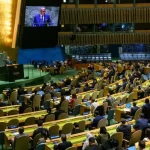The Ethiopian Investment Board’s new directive now permits foreign investment in crucial export areas, including coffee, oilseeds, pulses, and hides and skins. Additionally, it allows the import of all goods except for fertilizer and petroleum. Foreign companies can now also participate in the wholesale and retail sectors.
There are requirements to obtain investment permits under these new regulations. These will be officially active once published on the websites of the Ministry of Justice and the Commission.
Breakdown of the minimum requirements for foreign investors in key export sectors:
- Coffee: A 10 million USD annual procurement history and a commitment to exporting 10 million USD annually for the past 3 years (even higher requirements for companies without prior Ethiopian deals).
- Oilseeds: A 5 million USD minimum annual procurement history (or 7.5 million USD for new entrants).
- Pulses and Hides & Skins: 1 million USD and 500,000 USD minimum annual procurement history respectively.
- Livestock: No minimum procurement history required.
These requirements aim to ensure foreign investors have a strong track record and significant investment capacity.
The government requires foreign companies to commit to building modern marketing infrastructure and efficient logistics systems. This steep barrier aims to attract only the biggest players – global giants with proven financial strength, not small or medium-sized businesses.
Analysts see this strategy as a two-pronged attack. Ethiopia hopes to significantly boost exports through foreign investment and modernize its domestic sectors with advanced expertise. However, critics worry that local businesses might be crushed by the competition from these international powerhouses.
The government defends its approach, arguing that past, limited liberalization efforts fell short. They believe competition from established foreign players is necessary to drive efficiency gains in the Ethiopian economy.
This policy change aligns with Prime Minister Abiy Ahmed’s broader vision. He recently announced plans to allow foreign ownership of residential property, all with the goal of attracting substantial foreign direct investment, which he sees as essential for Ethiopia’s development.





